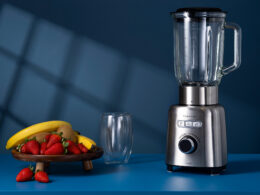A sustainable kitchen is a concept where eco-friendly products and methods are used together, making more efficient use of resources. Reducing plastic waste, using energy-saving appliances, and opting for organic products are the main elements of this approach. In addition, sustainable kitchens provide an economic advantage with long-lasting products and low energy consumption.
The rapid depletion of natural resources, increasing environmental pollution, and widespread food waste have made this approach even more important. Especially the pollution caused by single-use plastics is one of the leading environmental problems. A sustainable kitchen mindset not only benefits the environment but also contributes to your personal health and budget. With the right habits and eco-friendly products, you can live a healthy life while producing less waste and avoiding harm to nature.
What to Consider When Choosing Natural and Eco-Friendly Kitchen Products
The first step toward a sustainable kitchen is choosing natural and ecological products. While shopping, attention should be paid to whether the products are recyclable, compostable, or made from non-toxic materials. For example, bamboo cutting boards are not only an eco-friendly choice but also offer durability for long-term use.
Glassware and ceramic plates are preferred materials in kitchens for both style and health. Ceramic plates with elegant patterns provide versatility, from special dinner parties to everyday use. Additionally, glass storage containers keep food safer compared to plastic alternatives. These products stand out with both aesthetic appeal and eco-friendly qualities.
Plastic Alternatives: Glass, Bamboo, and Stainless Steel Products
Replacing plastic items with alternatives that are less harmful to the environment is an important step toward a sustainable kitchen. Glass storage containers not only provide a stylish look but also excel at keeping food fresh. Especially those with colorful lids add a modern touch to the kitchen while offering convenience.
Bamboo materials offer a natural feel and add warmth to the kitchen with their aesthetic appeal. For example, bamboo serving sets or placemats are both durable and eco-friendly. Stainless steel kitchenware supports a sustainable lifestyle with its durability and functionality. Steel pots distribute heat evenly for ideal cooking results, while their robust structure ensures long-term use. Stainless steel knives retain their sharpness for a long time, making them one of the most reliable helpers in the kitchen.
Advantages of Reusable Kitchen Materials
Reusable kitchen materials play a key role in both adopting an eco-friendly lifestyle and achieving long-term savings. Compared to single-use products, these items generate less waste and contribute to the preservation of natural resources. In addition, durable materials ensure longevity and eliminate the need for frequent replacement.
From a health perspective, these products are typically made from safe materials such as glass, ceramic, or stainless steel, providing a natural experience without leaving a chemical taste in your food or drinks. Reusable kitchen materials are not just an individual choice but also a valuable investment in a sustainable future.
The Role of Local and Seasonal Foods in the Kitchen
One of the most effective ways to build a sustainable kitchen is by focusing on local and seasonal foods. Local products reduce carbon emissions from transportation and offer fresher, tastier options. Choosing fruits and vegetables that are in season is both economical and healthy.
Local markets not only promote eco-friendly habits but also support the local economy. In summer, you can prepare light and healthy recipes with fresh tomatoes, peppers, and cucumbers. Seasonal foods add variety to your kitchen while enriching flavor and nutrition.
Using Natural and Eco-Friendly Cleaning Products
Another important aspect of sustainable kitchens is the use of natural and eco-friendly cleaning products. Instead of chemical-based cleaners, using natural ingredients such as vinegar, baking soda, and lemon is both effective and healthy. Vinegar, for example, keeps ceramic plates and glass surfaces shiny without the need for harsh chemicals.
Caring for wooden products with plant-based oils increases their durability. Additionally, replacing plastic sponges with eco-friendly cleaning brushes and cloths is an effective way to reduce waste. Natural cleaning products ensure hygiene without harming the environment while also protecting your health.













